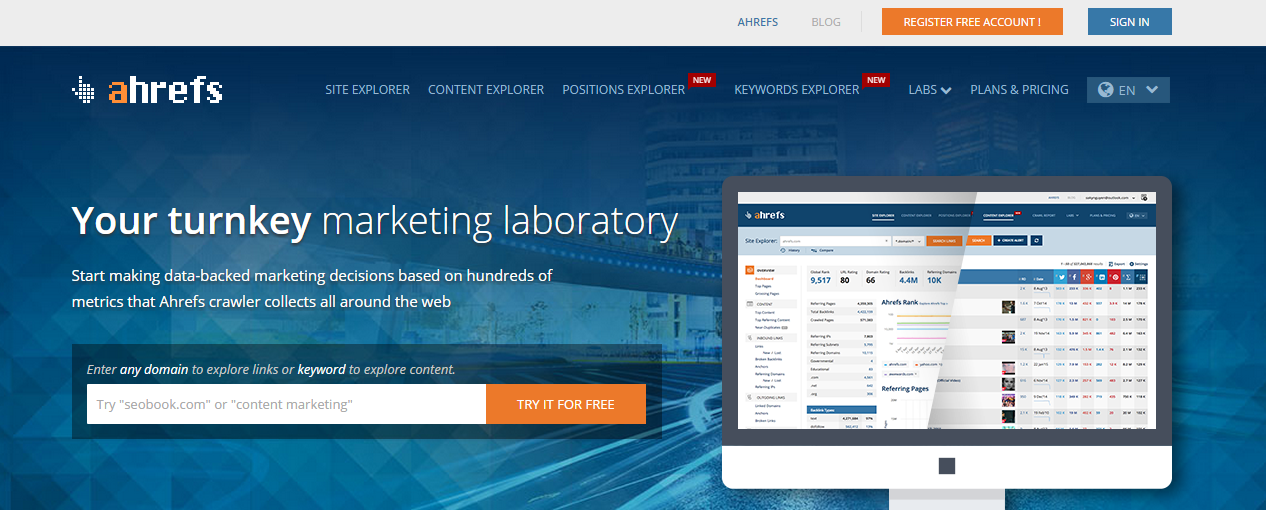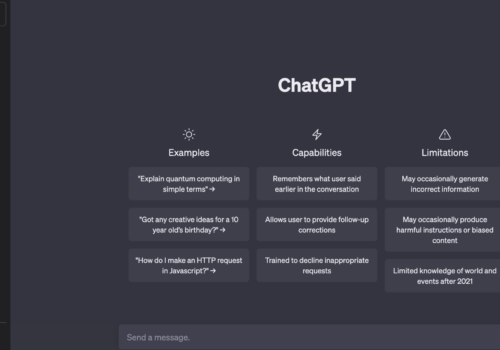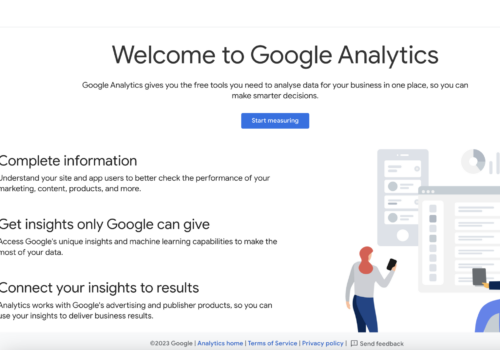The list of the top 20 Best B2B SaaS companies in the world right now is an impressive one. These are the businesses that have been able to rise above the competition and establish themselves as leaders in their respective fields.
They offer innovative solutions, employ cutting-edge technology, and maintain high customer service standards. No wonder they’ve become some of the most successful and respected names in enterprise software applications.
In this article, we will closely examine these top B2B SaaS companies and what makes them so successful. We’ll examine their offerings, success stories, industry positioning, business models, and more.
By learning more about these leading organizations, you can get valuable insights to help you become a better entrepreneur.
So let’s dive into the world of B2B SaaS and explore the top 20 greatest companies in the business right now!
What is B2B?
Business-to-business (B2B) software as a service (SaaS) is an online platform that provides users with access to a variety of services, usually on a subscription-based model.
These services range from web hosting and communication tools to analytics, data storage, security, and more.
With B2B SaaS, companies can streamline their operations by eliminating the need for manual processes and allowing them to focus on improving customer experience and driving growth.
Furthermore, these platforms provide businesses with reliable scalability—allowing for consistent performance regardless of workloads.
By leveraging the cloud infrastructure of B2B SaaS providers, companies are able to securely store data while also reducing costs associated with hardware investments or maintenance fees.
Ultimately, B2B SaaS allows organizations to scale operations with fewer resources, ensuring that they remain competitive in an ever-evolving digital landscape.
This helps ensure that businesses can keep up with industry trends while staying ahead of the curve when it comes to customer service and product innovation.
The benefits of using a B2B SaaS platform are numerous.
By utilizing this type of software as a service, businesses can enhance collaboration between departments, facilitate communication with customers or partners, streamline processes, and reduce time spent on manual tasks.
Additionally, deploying such solutions allows organizations to stay agile by allowing them to quickly respond to changing demands, customer needs, and market conditions.
This helps ensure that businesses remain competitive in an ever-evolving digital landscape.
Finally, B2B SaaS solutions are becoming increasingly affordable as technology advances, making it possible for companies of all sizes to enjoy the benefits of this platform without breaking their budget.
20 Best B2B SaaS Companies 2025
Here is the list of the 20 Best B2B SaaS Companies:
1. Microsoft:
Microsoft is a leading B2B SaaS industry player with its cloud platform, Microsoft 365. This platform offers a range of essential office tools such as Word, Excel, and PowerPoint to cater to your document, spreadsheet, and presentation needs.
With Microsoft 365, you can also collaborate with your colleagues in real-time, enhancing the efficiency of your team’s workflow.
One of the standout features of Microsoft 365 is its advanced security and backup features. This ensures that your data is safe and secure, providing peace of mind to businesses of all sizes.
In addition, the platform includes an Outlook email client, allowing you to stay connected with your key contacts effortlessly.
2. Dropbox:
Dropbox is a popular B2B SaaS company that specializes in file sharing. It offers a simple and efficient way to share and store images, videos, and other assets privately and securely.
With Dropbox, there’s no need to worry about file size limitations, as files up to 2TB can easily be shared. One of the standout features of Dropbox is its collaboration capabilities.
It enables teams to collaborate seamlessly and efficiently, improving overall productivity. Dropbox also provides a central location for all your files, including computer backups and photo libraries, making it easy to access everything in one place.
Moreover, Dropbox’s user-friendly interface makes it easy for even the most technologically challenged individuals to navigate and manage their files.
The platform offers advanced features such as version control and selective sync, ensuring that you have full control over your data.
While Dropbox’s file-sharing capabilities are undoubtedly a strength, it does have some drawbacks. One of the cons is that it can be relatively expensive, especially for businesses that require a large amount of storage space.
3. Amplitude:
Amplitude is a B2B SaaS company specializing in providing product analytics, a crucial aspect of comprehending a product’s influence throughout the customer journey.
Amplitude’s self-service platform enables teams to understand their user base better, increase conversions, and enhance engagement, growth, and revenue.
By utilizing data-driven insights, teams can anticipate the optimal combination of product features and customer actions that will result in the highest revenue, loyalty, and customer lifetime value.
Amplitude’s product analytics solutions empower businesses to make informed decisions and develop strategies tailored to their needs and objectives.
4. Ahrefs:
Ahrefs is a B2B SaaS company that provides an all-in-one SEO toolkit for business owners looking to improve their search engine ranking and increase website traffic.
With Ahrefs, users can conduct comprehensive website audits, optimize their website, analyze competitors, conduct keyword research, identify top-performing content within their industry, and track their progress in search rankings.
Ahrefs offers a range of features that cater to the needs of both junior marketers and SEO professionals. The platform provides users the tools to make data-driven decisions and improve their SEO results.
The SEO toolkit provided by Ahrefs enables businesses to stay ahead of their competitors by identifying and implementing effective SEO strategies.
The platform’s website audit feature allows users to identify technical issues and areas of improvement. At the same time, the keyword research tool helps businesses to identify the most relevant keywords to target for their industry.
Ahrefs’ content analysis feature provides businesses with insights into the type of content that resonates with their target audience, enabling them to create more effective content.
5. Zapier:
Zapier is a B2B SaaS company that offers an automation platform designed to simplify multi-step workflows and integrate with over 5,000 apps.
Similar to Slack, Zapier has its own unique vocabulary, with teams referring to the act of automating workflows as “Zapping” and the individual automated workflows as “Zaps”.
Zapier’s platform provides a simple and effective way to automate repetitive tasks and processes, freeing up valuable time for teams to focus on higher-value activities.
With Zapier, businesses can easily integrate their favorite apps and services, streamlining their workflows and increasing efficiency.
Whether it’s adding leads to an email list from Facebook or driving website visitors through a complete sales funnel, Zapier has a range of integrations to automate the process.
This means that teams can spend less time on manual data entry, copy and pasting, and other repetitive tasks and more on activities that contribute to business growth.
6. Descript:
Descript is a B2B SaaS company offering an AI-powered video editor platform to simplify content creation.
With a user-friendly interface requiring no video editing experience, Descript allows teams to write, record, edit, collaborate, and share content in one place.
This platform has proven to be an invaluable tool for businesses looking to streamline their content creation process. One of the standout features of Descript is its automatic transcription functionality.
Descript’s range of features allows businesses to create high-quality content with ease. From basic editing functions to more advanced features like multi-track editing and real-time collaboration, Descript can handle all your creative needs.
Additionally, Descript’s intuitive interface and powerful features make it an ideal tool for businesses of all sizes, from solo entrepreneurs to large enterprises.
7. SurveyMonkey:
SurveyMonkey is a popular B2B SaaS company that offers an easy-to-use platform for creating and delivering surveys. With its simple pricing and a range of features, SurveyMonkey has established itself as a leader in the survey-delivery space.
Powered by Momentive, Inc., the platform offers a robust library of customizable templates designed by experts to help users get the most out of their surveys.
The customizable templates in SurveyMonkey’s library make creating professional-looking surveys tailored to your specific needs easy. Whether you’re conducting employee surveys or market research, SurveyMonkey has something for everyone.
The platform offers a range of survey options, including multiple-choice, open-ended, and Likert scale questions, as well as advanced features like skip logic and question branching.
8. ClickUp:
ClickUp is a comprehensive project management platform that allows users to keep all their work in one place.
With features like task lists, goal tracking, and chat capabilities, ClickUp enhances collaboration, organization, and tracking of key projects and objectives.
The versatile platform caters to project managers, sales, marketing, engineering, finance, and other teams.
One of the standout features of ClickUp is its variety of unique features, including mind maps, automation, and to-do lists, that cater to different needs and preferences.
These features are easy to use and highly customizable, allowing users to create and track tasks in the best way for them. Additionally, ClickUp offers integrations with various other tools, making it easy to incorporate into your existing workflow.
9. Attentive:
Attentive is a text message marketing platform that offers a way for businesses to engage with their customers through SMS marketing.
The platform allows businesses to create and send personalized text messages to customers who have opted in to receive them, giving them a direct and captive audience.
With Attentive, businesses can drive “conversational commerce,” which means using messaging channels to create personalized and meaningful customer interactions.
One of the major advantages of using Attentive is that it enables businesses to reach their customers where they are most likely to be paying attention, their mobile phones.
As a result, businesses can expect higher engagement and better conversion rates than with other marketing channels.
Additionally, Attentive offers a range of features designed to help businesses create compelling text message campaigns, including personalized messaging, segmentation, and automation.
10. Jira:
Jira, developed by Atlassian, is a comprehensive software development tool designed for agile teams. It offers a range of features to help engineering teams plan, track, report, automate, and release their projects from a single dashboard.
This platform enables teams to break down large projects into manageable tasks and collaborate with team members across various locations.
Jira also provides customizable templates for bug-tracking, scrum, DevOps, and other project types, making it easy to get started.
11. MailChimp:
Mailchimp is a cloud-based SaaS platform that enables businesses to create and automate email campaigns, design landing pages, and build digital ads.
It’s a powerful all-in-one marketing platform that provides businesses with various tools to increase customer engagement and sales.
One of the unique things about Mailchimp is that it grew to $700 million in revenue with only one seed round of capital. This is impressive because it shows the company could bootstrap its way to success without relying on outside funding.
The platform offers a wide range of templates for email marketing, landing pages, and digital ads, making it easy to get started quickly.
Users can customize templates with their own branding and content. Mailchimp also offers automation tools that allow businesses to send targeted emails to customers based on their behavior and interests.
This can help businesses save time and resources while increasing engagement and conversions.
12. HubSpot CRM:
HubSpot CRM is a B2B marketing platform that offers users a free version of its CRM tools. With its sales pipeline tracking feature, sales teams can keep track of leads from a single dashboard.
Additionally, users can view comprehensive reports on sales performance, productivity, and individual contributor performance.
HubSpot CRM allows users to add unlimited users, data, and up to 1 million contacts, making it a great choice for most sales teams, marketing, customer service, content marketing management, and operations teams.
The software application is also scalable, so users can start with the free version and scale up to paid versions when needed.
13. Salesforce:
Salesforce is a well-known and widely used CRM platform offering a suite of products under Customer 360.
These products are tailored to support different teams, such as the Sales Productivity Bundle for sales teams and the Service Efficiency Bundle for customer service teams.
The platform’s versatility allows it to be customized to fit the unique needs of any organization, regardless of size or industry.
One of the best features of Salesforce is the Find Your Solution tool, designed to help users identify the best products for their specific needs.
Users can receive customized recommendations that match their specific requirements by answering simple questions about their industry, role, and organizational size.
14. Slack:
Slack’s collaboration platform has become so ubiquitous that it has become a verb. Slack provides a central hub where teams can collaborate on projects and communicate with each other in real-time.
It has become a popular alternative to email, allowing users to organize their conversations into channels based on topics or projects.
Slack also offers a variety of integrations with other apps, such as Google Drive, Trello, and Zoom, making it easy to work across different platforms.
Additionally, it has features like voice and video calls, screen sharing, and file sharing, all in one platform.
However, one drawback of Slack is that it can become overwhelming with too many channels and notifications, making it easier to stay organized.
Another drawback is that keeping track of important information buried in chat logs can take time and effort.
15. Shopify:
Shopify is an e-commerce platform that has gained immense popularity among businesses and individuals looking to create online stores.
The platform offers an all-in-one solution that includes a store builder, inventory management, payment tracking, and business insights. The store builder is Shopify’s core offering, allowing users to create an online store without any coding knowledge.
One of the key benefits of using Shopify is its customizable theme templates from top designers. These templates make it easy for users to create a beautiful website that reflects their brand and style.
In addition, Shopify provides a range of sales and marketing channels that allow businesses to reach their customers wherever they are, whether online, in person, or both.
16. Typeform:
Typeform is a software-as-a-service (SaaS) platform that allows users to create interactive forms, surveys, and quizzes. Its unique feature is its conversational format that engages users and keeps them interested throughout the process.
The platform offers customizable themes and layouts, built-in photo and video libraries, and a modern interface that differentiates it from other form builders.
Typeform offers various templates for different industries, such as event registration, lead generation, customer feedback, and job applications. Users can also create their templates and share them with their team or community.
Typeform provides an analytics dashboard that displays real-time data and insights on completion rates, drop-off points, and user responses. Users can export the data to different formats, including CSV, Excel, Google Sheets, and more.
17. Gusto:
Gusto is an all-in-one HR platform that offers a comprehensive suite of payroll, benefits, and hiring tools for businesses of any size.
With Gusto, you can streamline the onboarding process for employees and contractors, ensuring everyone gets paid on time. Gusto’s payroll service offers automated calculations for salaries, taxes, and other deductions.
It also helps with compliance by filing taxes and generating all necessary tax forms.
Additionally, Gusto offers benefits administration, including health insurance and 401(k) plans, and can help uncover tax credits you might have yet to learn about.
One of the key advantages of using Gusto is its user-friendly interface, which is easy to navigate and simplifies complex HR processes.
Gusto’s platform also offers a range of integrations with other popular business tools, such as accounting software and time-tracking systems.
18. Notion:
Notion is a powerful project management software that can help businesses keep track of everything they need to do.
By combining all the different aspects of a project into one central location, Notion makes it easy to organize and locate important meeting notes, HR documents, workflows, design documents, engineering wikis, and more.
One of the best things about Notion is the available community-made templates and integrations. These can help you tap into other creators’ tools and knowledge, giving you even more ways to optimize your workflow.
Plus, starting with the free, pre-built setups can help you understand how Notion can be used in various use cases.
19. Webflow:
Webflow is a no-code website builder that enables businesses to design and develop their websites without coding.
It allows users to create beautifully designed, interactive websites and launch them quickly, all while offering a wide range of features and tools.
With Webflow, users can easily create and customize their website designs using a visual canvas, eliminating the need for coding skills.
Businesses can create websites that match their unique vision without relying on developers. Additionally, Webflow’s platform allows users to easily add e-commerce functionality, create blogs, and even monetize members-only content.
One of the biggest advantages of using Webflow is its ability to help businesses save time and money by eliminating the need for outsourcing web development projects.
With Webflow, businesses can create and launch a website in just a matter of days rather than
months. The platform also offers various integrations, allowing users to connect to other applications and services to enhance their website’s functionality further.
20. Deel:
Deel is a SaaS platform that provides comprehensive assistance to companies looking to hire and expand globally.
The platform handles all compliance, payroll, and HR matters for globally distributed teams, making it easy for companies to navigate the complexities of opening regional offices and setting up benefits.
While Deel doesn’t source talent for you, it provides a streamlined solution for companies hiring globally.
One of the advantages of using Deel is its ease of use. Companies can manage their remote teams and contractors from one dashboard, reducing the need for multiple tools.
The platform also provides real-time data and analytics, so you can monitor your team’s performance and track progress towards your business goals.
Another advantage of using Deel is its support for over 150 countries. Companies can quickly and easily onboard new employees or contractors in different countries without worrying about compliance or local laws.
Deel also provides 24/7 customer support, ensuring that companies have the assistance they need when they need it.
FAQs On 20 Best B2B SaaS Companies 2025
👉 What is B2B SaaS?
Business-to-business (B2B) software as a service (SaaS) is a cloud computing platform that allows organizations to purchase and access applications over the internet without installing them in their local devices or servers. It provides users with an easy, low-cost way to manage their business operations and streamline processes.
🤔 How do B2B SaaS companies make money?
B2B SaaS companies typically generate revenue through subscription-based models where customers pay a fee to access the services or applications offered. This can be done monthly or yearly, depending on the company's pricing structure. Additionally, some B2B SaaS companies offer additional services, such as consulting and technical support, which can also contribute to their overall revenue.
✔️ What are some of the advantages of using B2B SaaS?
Some advantages of using B2B SaaS include cost savings, scalability, ease of use, improved security, updated features, and access to cutting-edge technology. Additionally, many B2B SaaS companies provide a wide range of services, such as integration with other applications, customer service support, and user analytics, which can help organizations optimize their operations.
👉 What are some of the challenges associated with using B2B SaaS?
Although B2B SaaS offers many benefits to businesses, some potential challenges are associated with it, including data privacy concerns and limited customization options. Additionally, depending on the company you choose, additional costs may be associated with integrations and technical support services. It is important to research before selecting a B2B SaaS provider to ensure you get the most value for your money.
Quick Links:
- Best Web Hosting Companies Offering Free Domain Service
- Top Rated Hosting Companies for Bloggers
- Top Virtual Assistant Companies For Startups
- Best T-Shirt Dropshipping Companies
Conclusion: 20 Best B2B SaaS Companies 2025
The top 20 B2B SaaS companies in the world are an impressive lot. They have all achieved tremendous success in their own right and have made significant contributions to the overall development of the software-as-a-service industry.
From sales automation to project management tools, these companies have set a standard for excellence that has been difficult to match.
Each company’s product offerings have helped thousands of businesses improve their operations and become more efficient, thereby increasing their profitability and growth potential.
In today’s digital age, software-as-a-service is becoming a major part of many organizations’ IT strategy; as such, it is important for businesses to understand what these top B2B SaaS providers are offering and how they can benefit.
With so many powerful tools available, these companies have made it easier than ever for businesses to get ahead and remain competitive in the global marketplace.

























